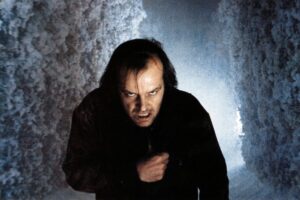Land Acknowledgement:
I would like to acknowledge that the land on which I live belonged to the Tocobaga people and currently belongs to the Seminole Tribe of Florida. I understand that the forces that allow me to live and create art on stolen land were the very same that led to the extinction of the Tocobaga in the 16th Century, and are the same forces that have caused the Seminole people so much strife in their storied history. I stand with the descendants of those Natives who established this land as their own, and as they have come to co-exist with a rapidly changing Florida I too will make every effort to co-exist along with the Seminoles of today. Our relationship will be one characterized by respect and self-awareness. This is not a change that can occur overnight, and as such, I am prepared to reconcile the bloody past that my existence on stolen land represents. I am incredibly grateful for the culture and life of the Seminole people, and I ask each of you to join us in doing the work to learn whose land on which you currently live.
Finding Escape in Terror: The Comfort of Horror Media in a Horrifying World
There is a concept present in most media, but most commonly associated with theatre, of a “fourth wall.” It comes from the idea that an audience member watching a show is consciously aware of the three physical walls that are common to proscenium stages, while simultaneously being subconsciously aware of a liminal fourth wall that separates them from the action taking place. Put simply, “The audience can see and comprehend the story, but the story cannot comprehend with the existence of the audience” (Lannom). People are safe on the other side of the fourth wall. They can look without ever touching. They can be scared by what they see, but rest assured knowing that it will never happen to them. But there is no fourth wall in real life. What happens in the world affects us all. Sure, we can ignore it, but we feel guilty. That reporter is speaking to us, telling us of the global goings-on as we sit and eat our dinner. The fourth wall is shattered. What happens when something truly scary finds its way to the other side?
 Take it from me. Having a dangerous, rapidly spreading global pandemic put a screeching halt to your career path is absolutely terrifying. I believe it was H.P. Lovecraft who said “The oldest and strongest emotion of mankind is fear, and the oldest and strongest kind of fear is fear of the unknown.” That fear has permeated every aspect of my life for the past eight months, and I’m sure I’m not the only one. Will the theatre industry ever recover? Will society ever recover? I know that my twenties would bring about a number of existential quandaries I would have to reckon with, but I always thought that I could place those thoughts on a back burner. That I could build a fourth wall between myself and facing the tribulations of adulthood. That obviously hasn’t been the case for several months now. And for a little while, I was struggling to find some new sort of escape from the fears that this current climate has exacerbated.
Take it from me. Having a dangerous, rapidly spreading global pandemic put a screeching halt to your career path is absolutely terrifying. I believe it was H.P. Lovecraft who said “The oldest and strongest emotion of mankind is fear, and the oldest and strongest kind of fear is fear of the unknown.” That fear has permeated every aspect of my life for the past eight months, and I’m sure I’m not the only one. Will the theatre industry ever recover? Will society ever recover? I know that my twenties would bring about a number of existential quandaries I would have to reckon with, but I always thought that I could place those thoughts on a back burner. That I could build a fourth wall between myself and facing the tribulations of adulthood. That obviously hasn’t been the case for several months now. And for a little while, I was struggling to find some new sort of escape from the fears that this current climate has exacerbated.
 Horror as a source of entertainment is a fascinating anomaly. Why would anyone in their right mind actively seek films where an enigmatic, masked figure taunts and attacks teenagers? Who finds value in a father inexplicably driven mad to the point of hunting down his wife and child with an axe? What sense of security does an audience get in watching an innocent girl suddenly transform into a shocking, profane beast of unknown origin? These scenarios all share one common theme, and if you’ve been reading this far, I’m sure you’re picking up on it. It is because they are films; it is because these malevolent forces are unknown, that horror film and horror media are so popular. We, as an audience, understand that what we are witnessing is shrouded behind the fourth wall. Thus, we can face our fear of the unknown without repercussion. We do not want to reckon with real-world ambiguity. We would go insane if we dwelled on the uncertainty of a global pandemic, or the gradual descent into literal hellfire. When the world outside gets too scary, we seek solace in these hyperbolic representations of our base fears. What twisted face lies behind that William Shatner mask? What force is driving Jack Nicholson to insanity? What being has found a home inside Regan MacNeil? WHO CARES? It isn’t happening to us. Simply put, watching horror films is group therapy on a massive scale.
Horror as a source of entertainment is a fascinating anomaly. Why would anyone in their right mind actively seek films where an enigmatic, masked figure taunts and attacks teenagers? Who finds value in a father inexplicably driven mad to the point of hunting down his wife and child with an axe? What sense of security does an audience get in watching an innocent girl suddenly transform into a shocking, profane beast of unknown origin? These scenarios all share one common theme, and if you’ve been reading this far, I’m sure you’re picking up on it. It is because they are films; it is because these malevolent forces are unknown, that horror film and horror media are so popular. We, as an audience, understand that what we are witnessing is shrouded behind the fourth wall. Thus, we can face our fear of the unknown without repercussion. We do not want to reckon with real-world ambiguity. We would go insane if we dwelled on the uncertainty of a global pandemic, or the gradual descent into literal hellfire. When the world outside gets too scary, we seek solace in these hyperbolic representations of our base fears. What twisted face lies behind that William Shatner mask? What force is driving Jack Nicholson to insanity? What being has found a home inside Regan MacNeil? WHO CARES? It isn’t happening to us. Simply put, watching horror films is group therapy on a massive scale.
 Now, I cannot in good conscience recommend anyone reading this in this day and age to go out to a theatre and watch a horror movie. There is still a virus ravaging the world, and frankly, I personally do not trust the hygienic practices of theatres and other institutions until I know for sure that I will not be infected or infect others. But that’s okay, because I have a little secret to share with you: You don’t have to leave your house to go to Horror therapy. If you’re living with roommates, gather them around and put on a scary movie. If you have friends across the country, why not facetime them while watching the latest slasher? Yes, I will concede that the effect is not the same as, say, watching Get Out in a packed cinema, or participating in the fever dream that is a Rocky Horror Picture Show midnight screening. But it is the connection that counts. For a few hours, we can forget the fears that permeate our daily lives, and watch some truly messed-up stuff happen behind the safety of the fourth wall. We can go to sleep knowing that we are not alone in a world that seemingly makes less and less sense each day. We just have to make sure Freddy Kreuger doesn’t show up in our dreams.
Now, I cannot in good conscience recommend anyone reading this in this day and age to go out to a theatre and watch a horror movie. There is still a virus ravaging the world, and frankly, I personally do not trust the hygienic practices of theatres and other institutions until I know for sure that I will not be infected or infect others. But that’s okay, because I have a little secret to share with you: You don’t have to leave your house to go to Horror therapy. If you’re living with roommates, gather them around and put on a scary movie. If you have friends across the country, why not facetime them while watching the latest slasher? Yes, I will concede that the effect is not the same as, say, watching Get Out in a packed cinema, or participating in the fever dream that is a Rocky Horror Picture Show midnight screening. But it is the connection that counts. For a few hours, we can forget the fears that permeate our daily lives, and watch some truly messed-up stuff happen behind the safety of the fourth wall. We can go to sleep knowing that we are not alone in a world that seemingly makes less and less sense each day. We just have to make sure Freddy Kreuger doesn’t show up in our dreams.
Work(s) Cited / Image Credits
Dressler, Nathan. “The Mystery Behind Jason Voorhees’ Father in Friday the 13th.” Screengeek, Published 7 December 2019. Accessed 15 November 2020. Web.
Hibbard, James. “The Shining Producer Explains Ending Changes.” Entertainment Weekly, Published 30 March 2017. Accessed 15 November 2020. Web.
Lanndom, SC. “Breaking the Fourth Wall: Definition, Meaning, and Examples.” Studiobinder, Published 21 June 21 2020. Accessed 15 November 2020. Web.
Nguyen, Stacy. “17 Horror Movies With the Creepiest Kids You’d Never Want to Meet.” Popsugar, Published 24 June 2018. Accessed 15 November 2020. Web.

Greta Smith (She/Her/Hers)
DSF Digital Internship Participant
Florida State University C/O 2020
BA Theatre